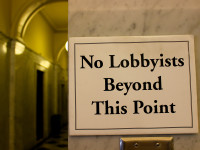The inclusion of copyright term extension in Budget 2022 – a commitment to implement was buried in an annex to the budget – will cause enormous harm to access to Canadian culture and history for a generation. My previous posts in the series examined the incredible array of authors and political figures that helped shape Canada for decades who will have their works locked out of the public domain. The response from supporters of the policy is typically to ignore the economic evidence and reality that copyright already protects works for 50 years *after* the death of the creator, by relying on claims that term extension will benefit creators.
Yet consider the comments of Bryan Adams, one of Canada’s best known artists. In a 2018 submission to the Standing Committee on Canadian Heritage, Adams foresaw the likelihood of term extension and issued a warning:











